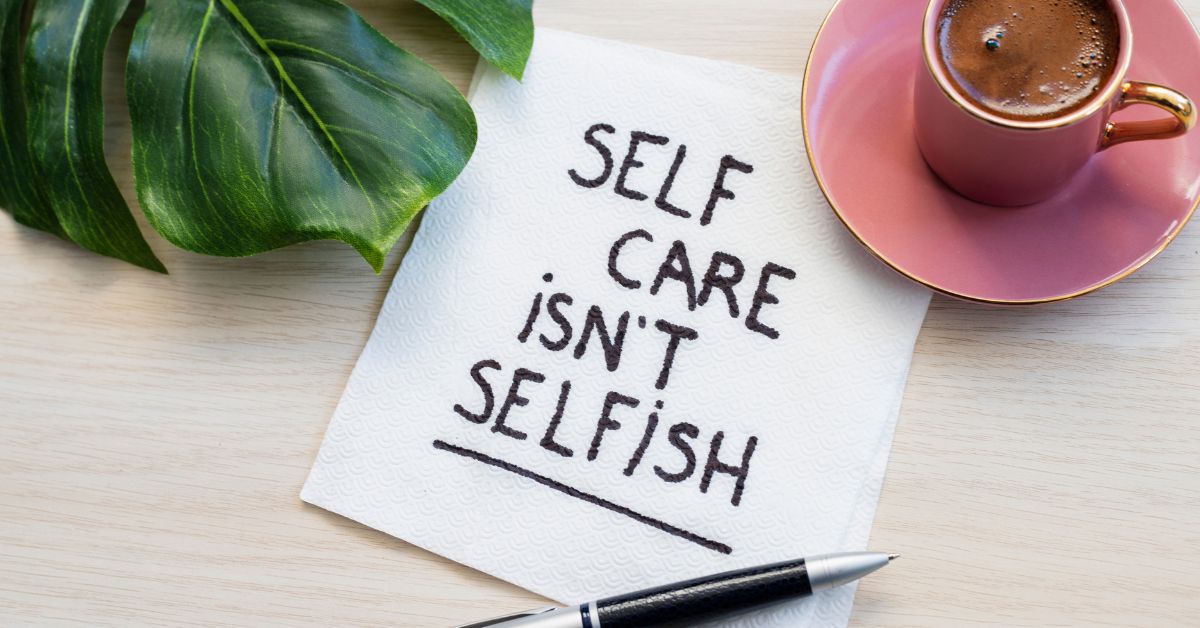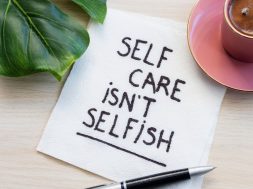
By: Sabrina Peters
Self-care is not an endorsement for self-indulgence or an excuse to evade responsibility or forsake commitments.
In fact, it’s quite the opposite. Holistic self-care is simply good stewardship (godly stewardship) that gives us the strength, resilience, and clarity required to fulfil our purpose and effectively serve God and others. It’s an intentional cycle of self-renewal that allows us to pour out love, compassion, and support, to the world around us.
Not as an act of selfishness, but as a strategic and compassionate choice.
A lot like the emergency advice given before a plane takes off, reminding us that we need to secure our own oxygen mask before assisting others. Because if you’re fatigued, strung out and disorientated you’re really not much help to others.
As Christians, we’re called to be faithful stewards of our time and relationships while also tending to our well-being through intentional practices.
Maybe you’ve heard the saying, you can’t pour from an empty cup? Well, it’s true.
So, what does healthy self-care look like? Here are some suggestions for practical, mental and spiritual self-care.
Practical Self Care
- Regular Exercise: Engaging in physical activity not only benefits your body but also boosts your mood and reduces stress.
- Balanced Nutrition: Fuelling your body with a nutritious diet that supports your physical health and energy levels.
- Adequate Sleep: Prioritising quality sleep to rejuvenate your body and mind.
- Hydration: Drinking enough water throughout the day to maintain your overall health.
- Time in Nature: Spending time outdoors can provide a sense of peace and connection with the natural world.
- Hobbies and Interests: Pursuing activities that bring you joy and allow you to unwind.
- Relaxation Techniques: Practicing mindfulness, meditation, or deep breathing exercises to manage stress.
- Digital Detox: Taking breaks from screens to reduce screen-related stress and enhance real-life connections.
Even in God’s word we are reminded that our bodies are temples of the Holy Spirit. Caring for our physical health through proper nutrition, exercise, and rest is an act of stewardship.
When we neglect self-care, we compromise the vessel through which God’s work is accomplished in our lives.
Mental Self Care
- Journaling: Write down your thoughts and feelings to gain clarity and emotional release.
- Reading: Get lost in a good book to expand your knowledge and escape into different worlds.
- Creative Expression: Engage in artistic endeavours like painting, writing, or crafting.
- Learn Something New: Pursue a new skill or hobby that interests you.
- Therapy and Counselling: Seek professional help when needed to address mental health concerns.
- Emotional Check-Ins: Regularly assess your emotional state and address any issues or concerns.
- Limit Negative Influences: Reduce exposure to negative news or people who drain your energy.
Self-care encompasses more than just physical and mental health; it extends to our spiritual well-being. Taking time for solitude, prayer, and meditation is an integral aspect of self-care from a faith perspective. It is in these moments that we can connect with God, gain spiritual insight, and find renewed strength to face life’s challenges.
Spiritual Self Care
- Prayer: Connect with God through prayer and meditation.
- Attend Worship Services: Participate in church gatherings or services that align with your faith.
- Reflect and Contemplate: Take moments of quiet reflection to deepen your spiritual connection.
- Volunteer: Engage in acts of service or charity to nourish your soul and give back to the community.
- Join a Faith Community: Become part of a faith-based group or community for support and fellowship.
- Gratitude Practice: Cultivate a habit of gratitude by focusing on the blessings in your life.
- Forgiveness: Practice forgiveness, both of others and yourself.
- Mindful Living: Live in the present moment, appreciating the beauty and significance of each day.
Ultimately, healthy self-care is a holistic approach that integrates faith, mental health, and physical well-being, aligning our lives with God’s intended plan for a healthy and meaningful life.
About the Author: Sabrina is a writer, pastor and relationships blogger. She is passionate about Jesus and changing the way people think about God, relationships and sex.
Article supplied with thanks to Sabrina Peters.
Feature image: Canva Pro











